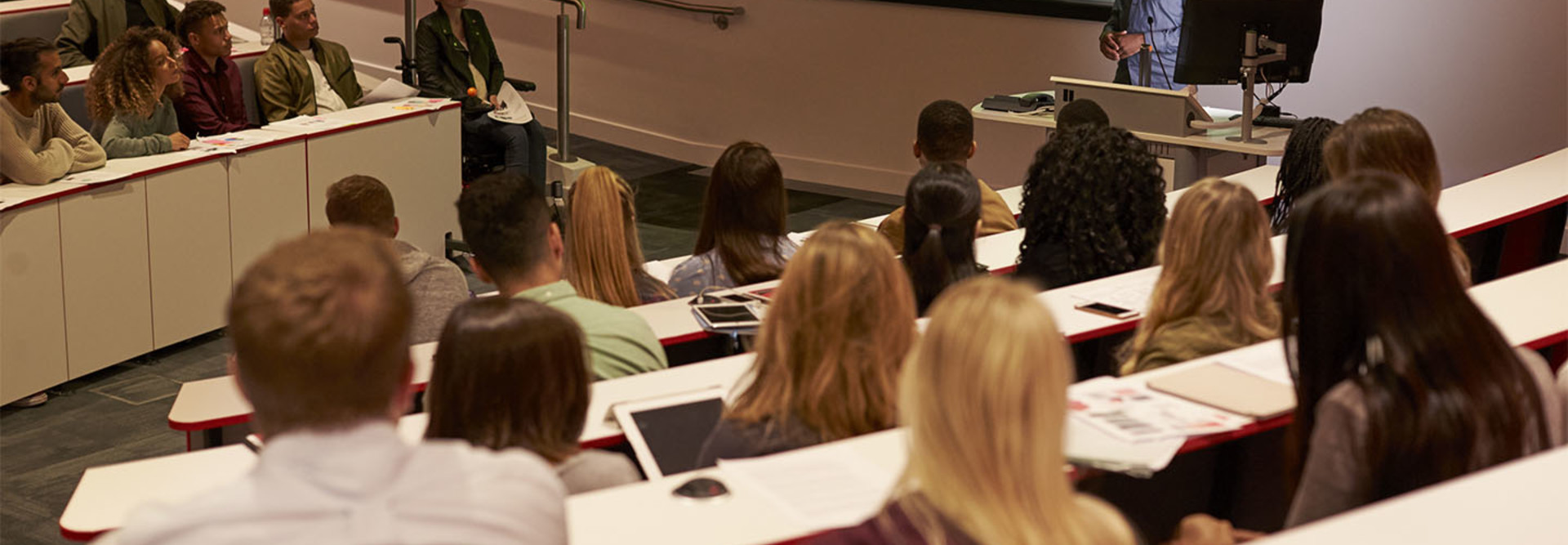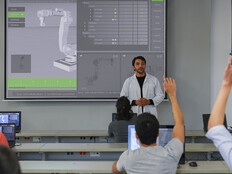Adaptive Learning and Partnerships Drive Academic Transformation
With higher education enrollment rates dropping each year, universities will likely continue to rethink what learning at the college level looks like. No matter what solution they arrive at or strategy they come up with, technology is going to play a major role.
“What we’re seeing this year is that student success is absolutely still important, but it’s not the central organizing North Star for technology or innovations for institutions,” Susan Grajek, vice president for communities and research at EDUCAUSE, tells EdTech. “Institutions are using technologies to remake higher education.”
The EDUCAUSE Learning Initiative identified this academic transformation as its top issue in teaching and learning for 2018.
Jonathan Huer, director of instructional technology support services at California State University, Long Beach, writes in an ELI report that academic transformation requires that universities offer diverse opportunities to fulfill the demands of the 21st century. They can take advantage of existing and emerging technologies and public/private partnerships to do that.
Educational options should allow students to decide whether a traditional, online, adaptive, competency-based or other type of program best meets their needs, Huer writes.
With many schools already embracing partnerships and innovative types of education, it’s clear that the academic transformation is already underway in higher education, and students and industries are reaping the benefits.
SIGN UP: Get more news from the EdTech newsletter in your inbox every two weeks!
Business-University Partnerships Ready Students for the Workforce
When universities find industry partners to support classes and internships, specifically technical ones, school leaders don’t have to fear that students aren’t prepared to enter the workforce.
At the Georgia Tech Manufacturing Institute (GTMI), for example, industry and academia have collaborated to teach 21st-century skills and explore the technological challenges of manufacturing, EdTech reports. The university’s Manufacturing Scholars Program also gives students access to a professor mentor and an industry mentor, and includes a three-month internship.
“It gives students the opportunity to gain real-world experience, while giving industry an opportunity to get to know students they might want to hire long-term. It’s a real win-win,” Tina Guldberg, the associate director of GTMI, tells EdTech.
Corporations such as Google have also stepped up to create more real-world opportunities for college students. The tech titan pioneered a Google in Residence program aimed at enticing students from historically black colleges and universities into technology disciplines.
In addition to specific partnerships, entrepreneurship programs that have students develop and pitch tech startups have also emerged in the past year as a way for students to explore their ideas, and learn valuable lessons about collaboration and failure before they enter the workforce.
Adaptive Learning Creates Personalized Education
While partnerships facilitate hands-on education, adaptive learning programs are emerging as a way to make sure every class that a student takes is a valuable learning experience.
Adaptive learning, which uses data and aspects of artificial intelligence to tailor material to the specific student, is a way for colleges to turn away from dispensing one-size-fits-all curriculum.
For example, Oregon State University partnered with software company Smart Sparrow to create adaptive chemistry lab simulations that allow instructors to create personalized labs for students who need remediation or fast-tracking of course content. The tool also allows students “to practice lab techniques and procedures in a risk-free, online environment, providing opportunities to build additional experience.”
University chief academic officers believe adaptive learning tools will have a big impact in academics, meaning their use will likely continue to grow.









